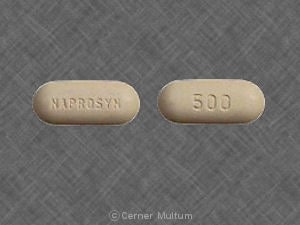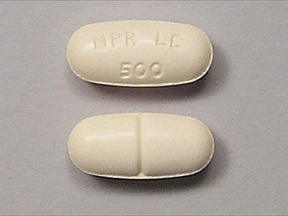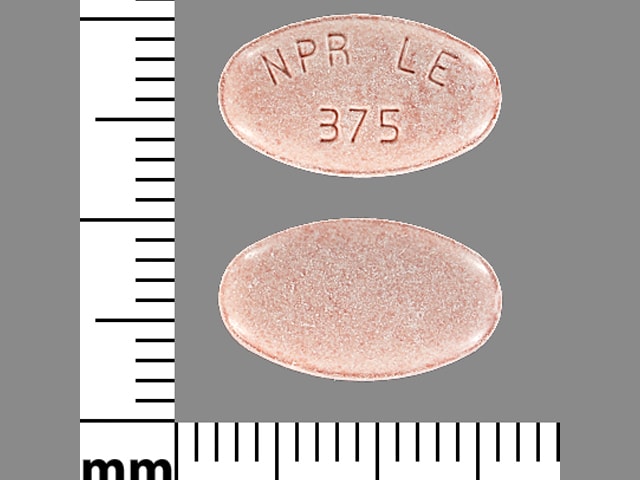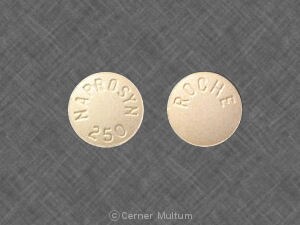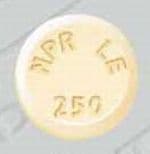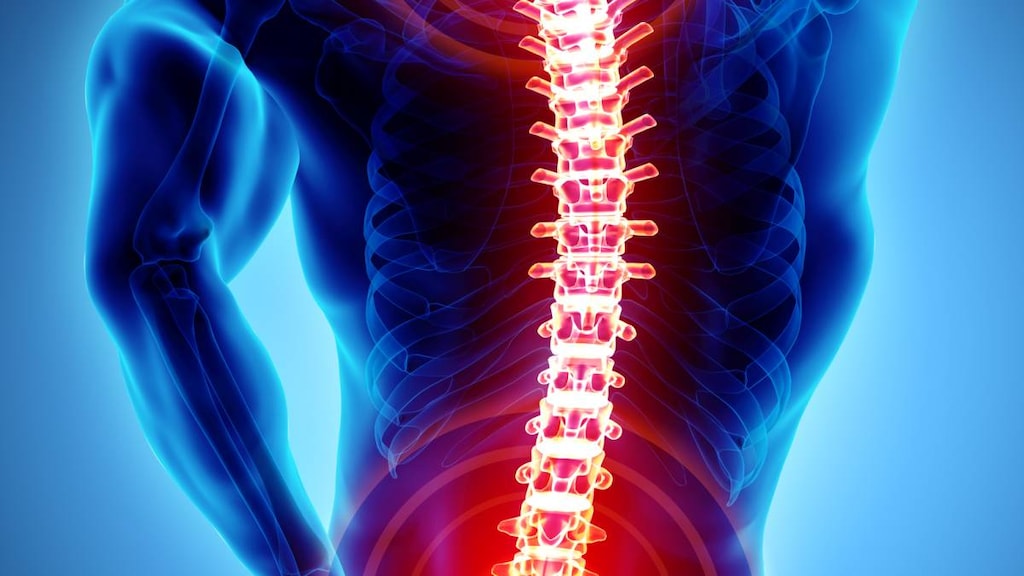What is Naprosyn?
Naprosyn and EC-Naprosyn are non-steroidal anti-inflammatory drugs (NSAIDs) indicated for:
the relief of the signs and symptoms of:
- rheumatoid arthritis
- osteoarthritis
- ankylosing spondylitis
- polyarticular juvenile idiopathic arthritis
Naprosyn and Anaprox DS are also indicated for:
the relief of signs and symptoms of:
- tendonitis
- bursitis
- acute gout
the management of:
- pain
- primary dysmenorrhea
What is the most important information I should know about Naprosyn?
Naprosyn and other NSAIDs can cause serious side effects, including:
- Increased risk of a heart attack or stroke that can lead to death. This risk may happen early in treatment and may increase:
- with increasing doses of Naprosyn
- with longer use of Naprosyn
Do not take Naprosyn or other NSAIDs right before or after a heart surgery called a “coronary artery bypass graft (CABG)." Avoid taking Naprosyn and other NSAIDs after a recent heart attack, unless your healthcare provider tells you to. You may have an increased risk of another heart attack if you take NSAIDs after a recent heart attack.
- Increased risk of bleeding, ulcers, and tears (perforation) of the esophagus (tube leading from the mouth to the stomach), stomach and intestines:
- anytime during use
- without warning symptoms
- that may cause death
The risk of getting an ulcer or bleeding increases with:
- past history of stomach ulcers, or stomach or intestinal bleeding with use of NSAIDs
- taking medicines called “corticosteroids”, “anticoagulants”, “SSRIs”, or “SNRIs”
- increasing doses of NSAIDs
- longer use of NSAIDs
- smoking
- drinking alcohol
- older age
- poor health
- advanced liver disease
- bleeding problems
Naprosyn should only be used:
- exactly as prescribed
- at the lowest dose possible for your treatment
- for the shortest time needed
Who should not take Naprosyn?
Do not take Naprosyn:
- if you have had an asthma attack, hives, or other allergic reaction with aspirin or any other NSAIDs.
- right before or after heart bypass surgery.
What should I tell my healthcare provider before taking Naprosyn?
Before taking Naprosyn and other NSAIDS, tell your healthcare provider about all of your medical conditions, including if you:
- have liver or kidney problems
- have high blood pressure
- have asthma
- are pregnant or plan to become pregnant. Talk to your healthcare provider if you are considering taking NSAIDs during pregnancy. You should not take Naprosyn and other NSAIDs after 29 weeks of pregnancy.
- are breastfeeding or plan to breast feed.
Tell your healthcare provider about all of the medicines you take, including prescription or over-the-counter medicines, vitamins or herbal supplements. NSAIDs and some other medicines can interact with each other and cause serious side effects. Do not start taking any new medicine without talking to your healthcare provider first.
What are the possible side effects of Naprosyn?
Naprosyn and other NSAIDs can cause serious side effects, including:
- See “What is the most important information I should know about Naprosyn?”
- new or worse high blood pressure
- heart failure
- liver problems including liver failure
- kidney problems including kidney failure
- low red blood cells (anemia)
- life-threatening skin reactions
- life-threatening allergic reactions
- Other side effects of NSAIDs include: stomach pain, constipation, diarrhea, gas, heartburn, nausea, vomiting, and dizziness.
Get emergency help right away if you get any of the following symptoms:
- shortness of breath or trouble breathing
- chest pain
- weakness in one part or side of your body
- slurred speech
- swelling of the face or throat
Stop taking your Naprosyn and call your healthcare provider right away if you get any of the following symptoms:
- nausea
- more tired or weaker than usual
- diarrhea
- itching
- your skin or eyes look yellow
- indigestion or stomach pain
- flu-like symptoms
- vomit blood
- there is blood in your bowel movement or it is black and sticky like tar
- unusual weight gain
- skin rash or blisters with fever
- swelling of the arms, legs, hands and feet
If you take too much of Naprosyn, call your healthcare provider or get medical help right away.
These are not all the possible side effects of NSAIDs. For more information, ask your healthcare provider or pharmacist about NSAIDs.
Call your doctor for medical advice about side effects. You may report side effects to FDA at 1-800-FDA-1088.
Other information about NSAIDs
- Aspirin is an NSAID but it does not increase the chance of a heart attack. Aspirin can cause bleeding in the brain, stomach, and intestines. Aspirin can also cause ulcers in the stomach and intestines.
- Some NSAIDs are sold in lower doses without a prescription (over-the counter). Talk to your healthcare provider before using over-the-counter NSAIDs for more than 10 days.
Naprosyn Images
General information about the safe and effective use of Naprosyn
Medicines are sometimes prescribed for purposes other than those listed in a Medication Guide. Do not use NSAIDs for a condition for which it was not prescribed. Do not give NSAIDs to other people, even if they have the same symptoms that you have. It may harm them.
If you would like more information about NSAIDs, talk with your healthcare provider. You can ask your pharmacist or healthcare provider for information about NSAIDs that is written for health professionals.
How should I store Naprosyn?
Naprosyn (naproxen) tablet: Store at 15°C to 30°C (59°F to 86°F) in well-closed containers; dispense in light-resistant containers.
EC-Naprosyn (naproxen) delayed-release tablet: Store at 15°C to 30°C (59°F to 86°F) in well-closed containers; dispense in light-resistant containers.
What are the ingredients in Naprosyn?
Active ingredients: naproxen
Inactive ingredients:
Naprosyn tablets: Croscarmellose sodium, ferric oxide red, povidone k90, magnesium stearate
EC-Naprosyn delayed-release tablet: Croscarmellose sodium, povidone K90, magnesium stearate, methacrylic acid - methyl methacrylate coploymer (1:1), talc, triethyl citrate, sodium hydroxide, water
For more information, call 1-844-302-5227.

